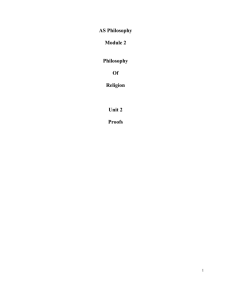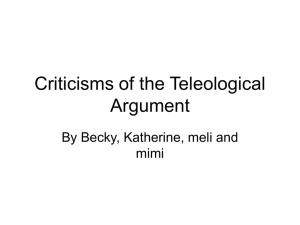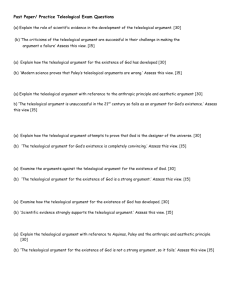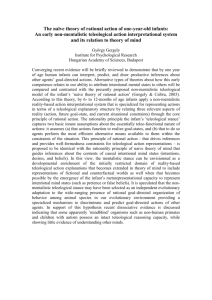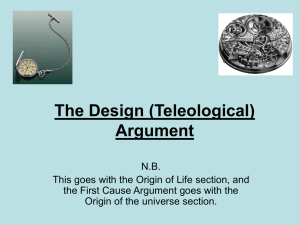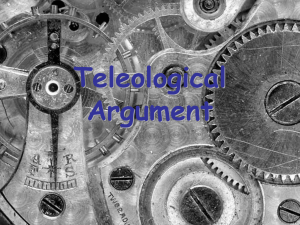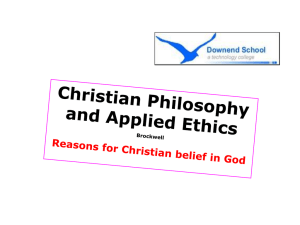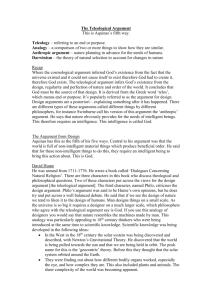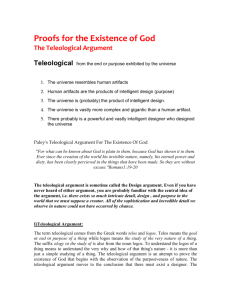Chapter 7: The Teleological Argument
advertisement
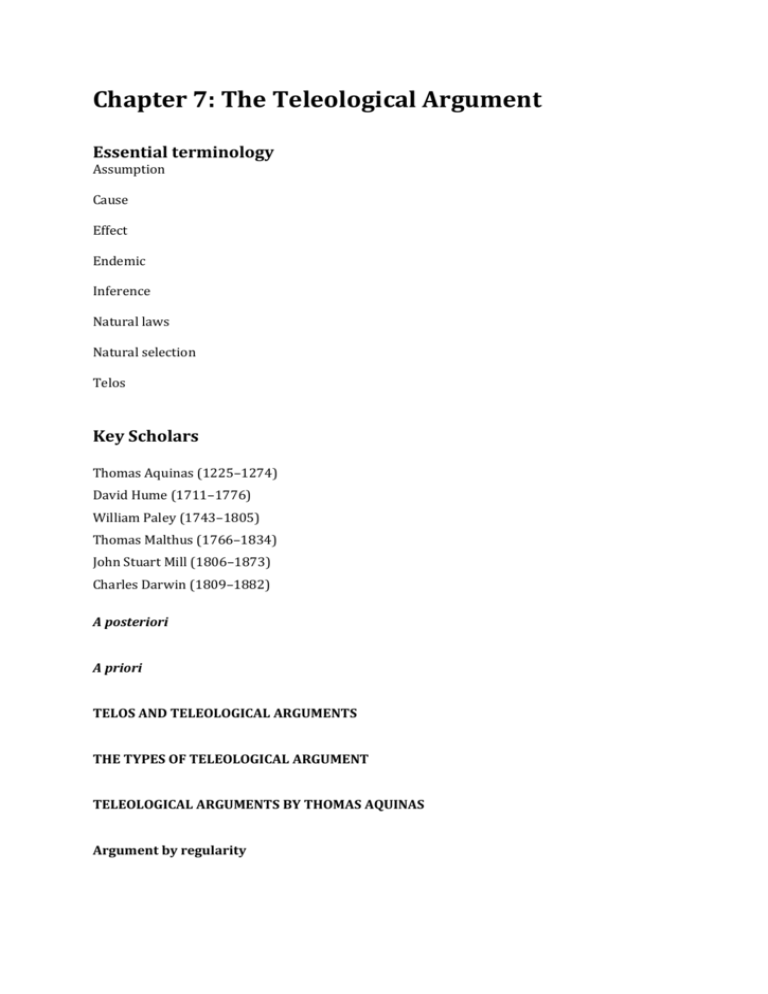
Chapter 7: The Teleological Argument Essential terminology Assumption Cause Effect Endemic Inference Natural laws Natural selection Telos Key Scholars Thomas Aquinas (1225–1274) David Hume (1711–1776) William Paley (1743–1805) Thomas Malthus (1766–1834) John Stuart Mill (1806–1873) Charles Darwin (1809–1882) A posteriori A priori TELOS AND TELEOLOGICAL ARGUMENTS THE TYPES OF TELEOLOGICAL ARGUMENT TELEOLOGICAL ARGUMENTS BY THOMAS AQUINAS Argument by regularity Aristotle and Aquinas WEAKNESSES IN AQUINAS’ ARGUMENT WILLIAM PALEY’S TELEOLOGICAL ARGUMENT What does the watch analogy show? The difference between arguments from regularity and from purpose How is Paley’s argument different from that of Aquinas? CRITICISMS OF PALEY’S ARGUMENT DAVID HUME’S CRITICISM OF TELEOLOGICAL ARGUMENTS Why David Hume rejected the use of analogy to prove the teleological argument Why David Hume argues that there are other possible explanations than God for apparent design in the universe Why Hume argues that random activity can lead to orderliness rather than disorder Ockham’s Razor WHERE DO HUME’S IDEAS LEAVE THE TELEOLOGICAL ARGUMENT? MILL AND TELEOLOGICAL ARGUMENTS DARWIN’S GREAT IDEA The voyage of the Beagle Thomas Malthus’ idea Natural selection How does natural selection relate to the teleological argument? IS THE GOD OF THE TELEOLOGICAL ARGUMENT ANYTHING LIKE THE CHRISTIAN IDEA OF GOD?
